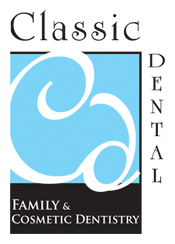


We are interested in hearing from you!
Wisdom teeth are the third-last permanent molars. These teeth are commonly called wisdom teeth because they usually erupt between the ages of 16 to 21, known as the ‘age of wisdom’.
A wisdom tooth is impacted when it is obstructed from erupting fully into the mouth by the tooth in front of it or the surrounding bone or gums, due to insufficient room in the jaw or because the tooth is emerging at an angle.
An impacted tooth that is still buried underneath your gums can be left alone as long as it is not causing you any pain or discomfort.
Improperly erupted wisdom teeth are breeding grounds for bacteria and may cause tooth decay, sometimes even affecting the neighboring teeth. Infection of the overlying gums can take place as well, resulting in pain and swelling.
More serious problems such as the formation of cysts or tumors around an impacted tooth can occur, leading to destruction of the surrounding jawbone and neighboring teeth. These conditions may require complex and extensive treatment. As problems can develop silently, without your knowledge, a check-up with your dentist is thus advisable.
Your initial visit would include an examination of your mouth and X-rays to determine the position of the wisdom teeth, their condition and the status of the adjacent teeth and bone.
To prevent problems associated with impacted wisdom teeth, it is advisable to remove them early. The best time to remove them would be during the teenage years, before the roots of the teeth are fully formed and firmly embedded in the jawbone. Healing is also better during this period, with less risk of complications.
This is a minor surgical procedure that can usually be performed with little discomfort. The procedure can be performed under local anesthesia (with or without sedation to control anxiety).
The surgery involves uncovering the tooth by lifting the overlying gums aside to expose the tooth and bone. The tooth may need to be sectioned in order to remove it.
After surgery, some minor bleeding from the wound can be expected, which can be controlled by biting on a piece of gauze over the operation area for about half an hour. Facial swelling and discoloration of the overlying skin will also develop, increasing for the first 72 hours and subsiding thereafter. You may not be able to open your mouth as wide as usual for a few days.
Painkillers, antibiotics and an antiseptic mouthwash may be prescribed after the surgery. You will be advised to maintain good oral hygiene and also to keep to a soft diet for a few days following surgery.
Get a look inside and see why our patients are always happy after their first visit to Classic Dental.
Get the 101 on tips and useful information before coming in for an appointment. We have a guide to get you going.